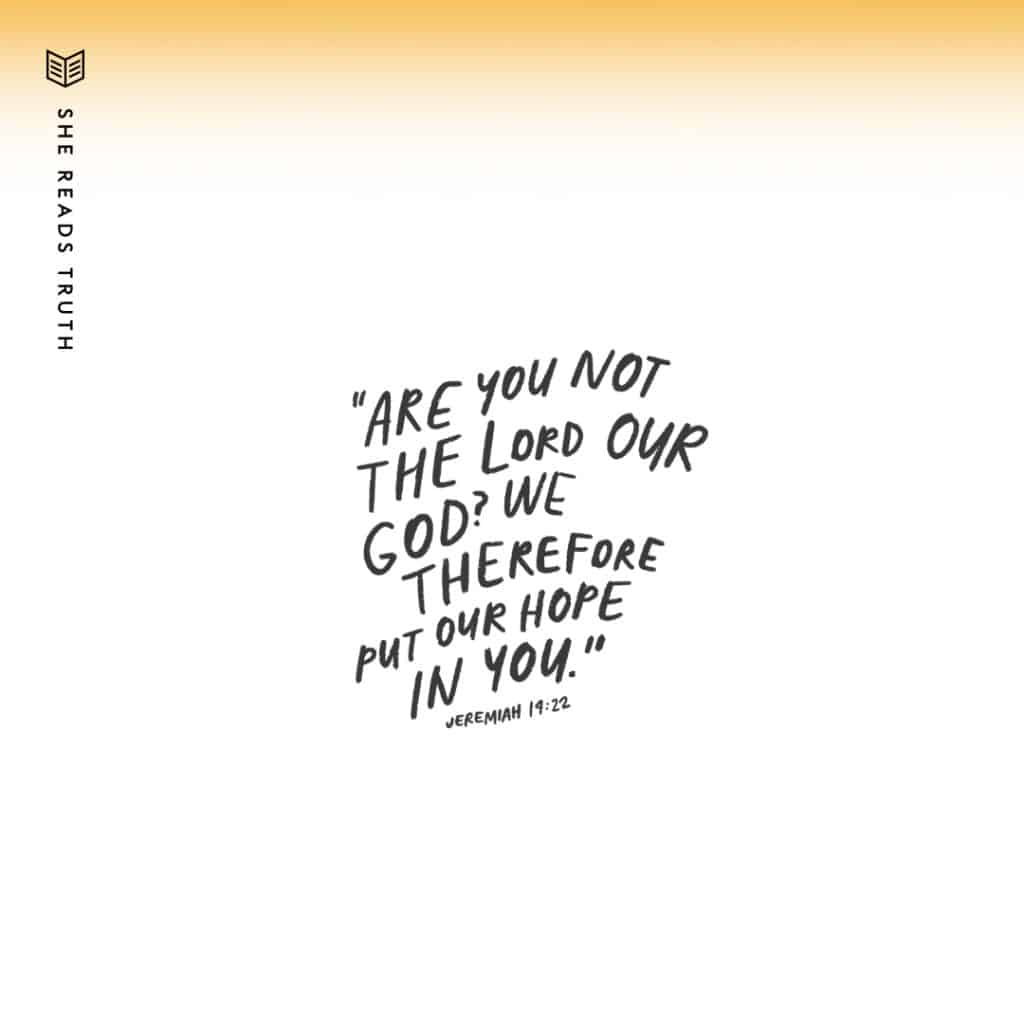Jeremiah’s Request
Open Your Bible
Jeremiah 13:1-27, Jeremiah 14:1-22, Psalm 25:7, 2 Peter 2:1-3
BY Rebecca Faires
I just couldn’t get past the dirty underwear in today’s reading. I kept trying to be a grownup, and look for the big picture to find the deeper meaning. But picturing a venerable and vulnerable Jeremiah wedging underwear between rocks down by the river is a tough image to get past. I looked for other translations for the underwear and found: linen belt, loincloth, waistband, sash, girdle, undergarment, and linen shorts.
Now, I love a breathable fabric just as much as anyone, but no matter how you slice it, it’s an intimate garment that’s been trashed. And it’s a metaphor for how the Lord has brought His people close and they turned out to be of no use, and rather an embarrassment, actually (Jeremiah 13:8–11). They’d refused to obey, fought among themselves, and had become proud, forgetting the Lord and trusting in lies instead (v.25). This is a picture of a people who have failed to heed the Lord’s warning to listen to Him in humility, confess their transgressions, and cry out for mercy (Jeremiah 13:15;14:7). The people of Judah had run after the idolatries of the world, rather than the treasures of the kingdom.
It’s a short step to confess that I am guilty of these same sins. All our hearts are idol factories, turning our gaze and affection toward lesser things. Apart from the tender mercies and the arresting grace of God, we will go the way of Israel and Judah, for even our very finest righteousness is as filthy rags (Isaiah 64:6).
The startling realization that we are a little like dirty underwear down by the river is the first step to healing. The Lord invites His people to confess their sins and put on the clean garment of His salvation (1 John 1:9). We are called to recognize with David and with Paul that “all have turned away; all alike have become corrupt. There is no one who does good, not even one” (Psalm 14:3; Romans 3:12). But we are not invited to sit and fixate on the filthiness and neediness of humanity. Instead, like Jeremiah, we are to cry out, “Are you not the LORD our God? We therefore put our hope in you” (Jeremiah 14:22).
Hope! We are called to put our hope in the Lord. This was such good news for Judah because they were certainly in a centuries-long snit of their own making. And this is beautiful news for us, too, because we are guilty of the same embarrassing rejections of God’s goodness and kindness toward us. This peculiar passage echoes that same gospel that the prophet Isaiah declared: “We all went astray like sheep; we all have turned to our own way; and the LORD has punished him for the iniquity of us all” (Isaiah 53:6). Though the first note of the gospel is our great guilt, the final note is one of resounding hope, and of praise for the undeserved lovingkindness God shows us.

Rebecca Faires loves the gospel story and needs it every morning when she wakes up to her six little people. Rebecca holds a bachelor’s degree in German from Hillsdale College, and most recently worked as the managing editor and writer at She Reads Truth. She now works from her log cabin in the hills of Tennessee, writing and illustrating books with her favorite mountain man. There she enjoys porch-sitting as it rains, reading the Oxford English Dictionary, and getting in way over her head. Her first book, The Book of Comforts: Genuine Encouragement for Hard Times, was released in March 2019.
48 thoughts on "Jeremiah’s Request"
-
Are you not the Lord my God? Therefore I put my hope in you. Amen.



Post Comments (48)